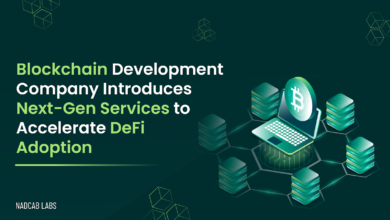Top Use Cases for AI Development Services Across Industries

You would have probably come across AI use cases that sound more like science fiction than a solution solving a specific problem in your industry.
You are not alone if you are having a hard time finding not just what’s “possible” or “nice-to-have,” but what’s worth integrating into your existing business process. Such that the AI integrations deployed by your AI development services partners drive real value across the verticals you care about in industries like healthcare, education, sports, and more.
Each of these critical industries has real opportunities for AI, but very different dynamics. Hence the starting point is different depending on your goals:
- Are you trying to automate operations?
- Do you want to improve decision-making?
- Or are you aiming to create a product that scales better than the competition?
Start with the biggest bottleneck in your business operations or the most expensive inefficiency, hire AI developers, and try to solve it with the best-fit AI solution. That’s where AI earns its keep.
So let’s walk through more such aspects across industries, one by one.
- Finance
- Fraud detection in real-time: Traditional fraud detection systems work on static rules. Unlike them, AI-enabled systems learn as patterns evolve, flagging unusual activity across transactions, devices, and geography. Fraud detection models are capable of catching the anomalies in seconds before a transaction completes, not hours after.
- AI trading algorithms: Especialy, if you’re in quant or algo-trading, AI algos can spot micro-patterns in market behavior that humans miss. These AI algorithms are designed to not just analyze price; they factor in sentiment, news, volume, volatility, and other signals that have a prominent effect on the price fluctuations so you can backtest, fine-tune, and deploy your portfolios with confidence.
- Customer service chatbots: Tier-1 queries (like “Where’s my refund?” or “How do I reset my password?”) can be handled 24/7 by NLP-powered bots. But done right, they’re not generic. They’re trained on your product, your terms, and your workflows. That’s where the user experience really clicks.
- Healthcare
- Enhanced diagnostics: Doctors are already stretched thin, and AI integration into the diagnostic systems is starting to help in ways that actually make a difference in how diagnoses are perceived. For example, it can analyze X-rays or MRIs and flag anything unusual, kind of like an extra set of eyes for the radiologist.
- Personalized treatment plans: AI copilots can dig through a patient’s records, past outcomes, and even genetic info from EHR systems and suggest the most plausible and effective treatment options that healthcare practitioners might not have considered yet. It helps save time without cutting corners, especially in complex cases.
- Administrative automation: AI systems or RPA solutions can take these tasks, like forms, claims, and appointment reminders, off the healthcare staff’s plate. That means less busywork for your staff and more time spent with the people who need them.
- Real-Estate
- Predictive maintenance: AI-enabled software for real estate stakeholders like landlords, REITs, or facility managers helps them predict when building systems (like HVAC or elevators) are likely to fail. These systems featuring predictive analytics derive the data, such as usage patterns, sensor data, and past breakdowns, to provide accurate predictions and forecasts.
- Automated Valuation Models (AVMs): Good AVMs analyze zoning, demographics, local market momentum, infrastructure plans, and even climate risk. This is how platforms like Zillow estimate property value dynamically.
- Personalized property recommendations: Based on their search behavior, price sensitivity, and lifestyle preferences, the recommendation engines tailored for the real estate business, especially the ones offering MLS, can match the users with the most relevant listing, leading to a far higher conversion rate.
- Sports
- Performance analytics: Coaches in leagues like the NBA are already using AI tools for feeding in player stats, video footage, and wearables data to dig into player stats, video replays, and biometric data. It helps them figure out what’s working, what’s not, and even spot signs of potential injuries before they happen.
- Game strategy optimization: When it comes to strategy, analysts used to spend hours breaking down tape; now AI helps speed that up and even spots patterns humans miss. It looks at formations, sequences, and reaction times and suggests tactical adjustments before the second half.
- Fan engagement: AI enablement helps tailor everything—content, merch, even highlights (used in the Paris Olympics)—to individual preferences. It can even tell when a fan might be losing interest and trigger something timely to keep them engaged, whether it’s a limited-time offer or an exclusive look behind the scenes.
- Education
- Personalized learning: EdTech apps with AI integrations for adaptive learning adjust learning paths based on how a student performs, serving up harder problems, giving explanations, or skipping what’s already mastered. It’s like giving every student a private tutor without the staffing cost.
- Automated grading and assessment: For coding, writing, or complex math, AI-integrated assessment modules of the EdTech systems can evaluate submissions in real time. This frees up instructors and shortens feedback cycles. In platforms with high learner volumes, this is a huge efficiency gain.
- AI assistants: Students get AI-powered tutors that explain concepts, give examples, and answer follow-ups. The result? Higher course completion and less pressure on live support.
Final Word on AI Use Cases Across Industries
You don’t need to “do AI.” You don’t need to “AI-ify” everything. You need to solve business problems. You need to solve them faster, cheaper, or better, and AI is just the tool that helps you do that.
You don’t need a full-blown “AI transformation.” You need a targeted initiative that moves the needle, whether it’s a 6-week pilot or a long-term roadmap.
Also, do not try to do too much, too fast, or without the right data; that’s what leads to failures. Otherwise, these use cases of AI can be the most powerful levers of growth and efficiency in your business.




